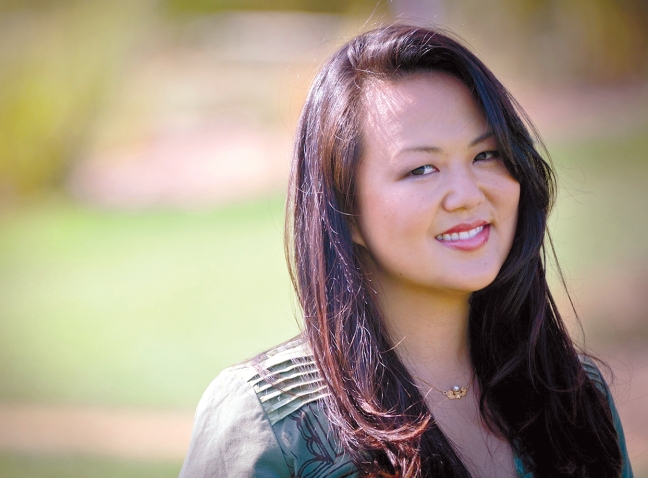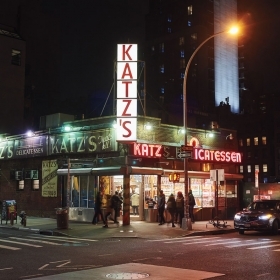For Jin Yoo-Kim ’04, all roads have led to film. There may have been a few tentative forays onto other career paths, but eventually the lure of the camera won out.
At Wellesley, Jin thought she was going to be a therapist. She followed the psychology track until junior year when, with many of her friends abroad, she picked up a second major: cinema and media studies. “I was a straight-B student in psychology,” she says. “But I was so much more interested and invested in film.”
Inspired by filmmakers representing their own communities, Jin’s early work centered on Asian women’s experience in America. Her thesis documentary, Breaking the Heterotype, focused on women’s sexuality in the Asian-American community. The film premiered at the San Diego Asian American Film Festival in 2006, validating her work in film.
After graduation, however, Jin earned an associate’s degree in merchandise marketing at the Fashion Institute of Design and Marketing in Los Angeles. For five years, she worked in the L.A. fashion industry. Her jobs didn’t appeal to her, but she could make films on the weekends. In 2009, she began an M.F.A. program in film and TV production at the University of Southern California’s School of Cinematic Arts, earning her degree in 2011.
Jin says one thing she loves about filmmaking is the ability to think ideas into existence. “You can tell people, ‘This is what’s in my head, this is what I was thinking about’,” she says. She has served as director for 16 films and producer for 14 others.
Most recently, Jin was a co-producer for the documentary A Woman’s Work, focusing mostly on day-to-day tasks like managing budgets, grants, and crew. The documentary, which is expected to premiere in 2018, follows NFL cheerleaders who are suing their teams for lost wages. Many teams have failed to pay their cheerleaders minimum wage, if at all, and while the situation has begun to change—in 2014, a class-action wage theft lawsuit resulted in a $1.25 million settlement from the Oakland Raiders—Jin says it has happened slowly.
For Jin, the ability to work on a film related to women’s rights is a welcome change. “You check yourself: At what point do I do the stuff I really want to do?” she says. “I wanted to make films that I cared about.”
A Woman’s Work feels, in part, like an extension of the activism she participated in at school, she says. “I feel like I came into this project because of my Wellesley background,” she says. In college, she was part of Wellesley Asian Alliance and started DisOrient, an Asian-American theater group.
At many of the places she’s worked, Jin says, she was often the only person of color. And it’s only recently that she’s felt connected to the community of Asian-American filmmakers as well as to other producers of color through a fellowship with the production company Firelight. But through hiring and encouragement, Jin does what she can to bring people of color into the film industry—not just behind or in front of the camera, but behind the desk as well. “We need people of color in every aspect of decision-making, not just creating the content,” says Jin.
For A Woman’s Work, Jin’s activism is manifested in her role as the impact producer, which involves connecting the documentary to schools and organizations to inspire social action and civic participation among viewers, encouraging them to work to end the gender wage gap and to change things for the next generation of women. On the educational circuit, she hopes to include platforms to teach women and college students what to look for in contracts and how to negotiate salaries.
Within the film industry, financial instability poses a constant challenge—for Jin, the hustle is a necessary part of the job. “If you’re afraid of the hustle, this industry is not for you,” she says. “But if you have the fortitude to stick with the unstable nature of the industry, don’t give up.”








We ask that those who engage in Wellesley magazine's online community act with honesty, integrity, and respect. (Remember the honor code, alums?) We reserve the right to remove comments by impersonators or comments that are not civil and relevant to the subject at hand. By posting here, you are permitting Wellesley magazine to edit and republish your comment in all media. Please remember that all posts are public.